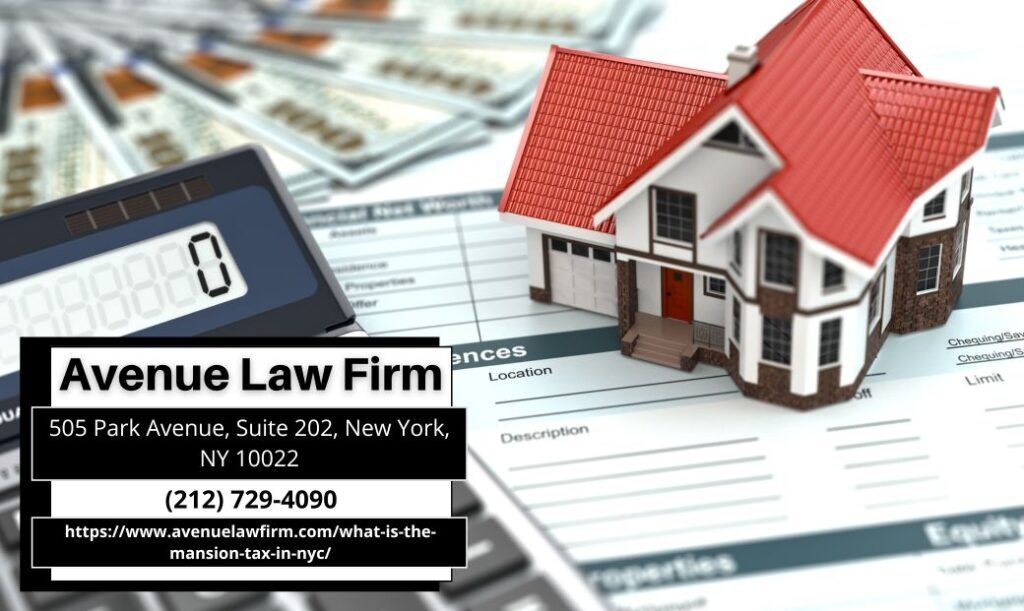Navigating high-end real estate in New York City often requires understanding the nuances of taxes that affect large transactions. One such cost is the Mansion Tax, a significant levy applied to high-value residential property purchases. NYC real estate attorney Peter Zinkovetsky, Esq. (https://www.avenuelawfirm.com/what-is-the-mansion-tax-in-nyc/) breaks down what this tax entails, who it affects, and how it continues to shape the market in the city. Representing Avenue Law Firm, Zinkovetsky offers a practical overview of the tax structure and its influence on buyers and sellers.
The Mansion Tax, as explained by NYC real estate attorney Peter Zinkovetsky, Esq., is a state-imposed fee on residential properties sold for $1 million or more. First introduced in 1989, the tax began as a flat 1% surcharge but was revised in 2019 to reflect a tiered structure. Rates now range from 1% to 3.9% depending on the sale price. This progressive structure means that buyers of more expensive properties shoulder a higher share of tax, significantly increasing closing costs in the city's luxury housing market.
For those working with an NYC real estate attorney, understanding the details of this tax is essential. Peter Zinkovetsky, Esq. clarifies that the Mansion Tax is calculated based on the total consideration paid for a property, including any included furniture or fixtures. “The Mansion Tax in New York City is a crucial factor for anyone involved in high-end real estate transactions,” he notes, emphasizing how even minor price adjustments can place buyers in a higher tax bracket. A property listed at just over $1 million might cost substantially more once this levy is applied, influencing both pricing strategies and negotiations.
Originally created to generate revenue from the upper tiers of the real estate market, the Mansion Tax continues to fulfill that purpose today. In 2019, lawmakers implemented the current sliding scale structure to boost public funds while addressing income inequality through targeted taxation. NYC real estate attorney Peter Zinkovetsky, Esq. details how the updated scale imposes steeper rates on properties priced at $5 million or more, with a 3.9% tax rate applying to transactions at or above $25 million. These amounts can add hundreds of thousands of dollars to the buyer's final costs.
With rising property values, the Mansion Tax has become increasingly relevant for a growing segment of buyers. Peter Zinkovetsky, Esq. outlines that while the tax is typically a one-time charge, it is non-deductible on federal returns. However, it may adjust the cost basis of the home, influencing future capital gains tax liabilities. For many, these considerations are critical when budgeting for a high-end purchase in New York City.
Strategies for managing this cost do exist. According to Zinkovetsky, buyers sometimes negotiate to reduce the sale price below a tax threshold. Others may separate the value of personal property, such as furnishings or artwork, from the real estate portion of the sale. While these methods require careful documentation, they can legally reduce the applicable tax rate. In select cases, especially in a buyer's market, sellers might agree to pay part of the Mansion Tax as an incentive to close the deal.
For properties in the $5 million to $25 million range, NYC real estate attorney Peter Zinkovetsky, Esq. recommends several practical strategies. For example, purchasing a building with four or more residential units may be exempt from the tax because it is treated as a commercial property. Likewise, price reductions just below tax tier thresholds can significantly decrease liability. Buyers are advised to structure deals thoughtfully, taking these tax levels into account during the negotiation phase.
Sellers also need to be aware of how the Mansion Tax affects buyer behavior. A property priced slightly over a threshold may see reduced interest due to the increased tax liability. As a result, sellers often adjust their listing prices to keep transactions just below tax brackets, helping to attract more competitive offers.
The broader real estate market in New York City also feels the impact of the Mansion Tax. Higher costs may slow transactions at the top end of the market, particularly for buyers who factor the tax into their overall investment calculus. This, in turn, affects pricing trends and market liquidity. At the same time, the tax supports city infrastructure projects like the Metropolitan Transportation Authority, feeding into the city’s larger public funding efforts.
Peter Zinkovetsky, Esq. stresses the importance of planning and legal support when approaching a transaction affected by the Mansion Tax. Whether buying or selling, having accurate information about this levy can prevent delays, penalties, and missteps. Failure to comply with filing requirements or payment deadlines can result in interest accrual, fines, and even legal action.
Working with a firm like Avenue Law Firm gives clients the legal framework needed to navigate the Mansion Tax effectively. Peter Zinkovetsky, Esq. helps clients understand which forms to file, how much tax to expect, and what options exist for negotiating favorable terms.
The Mansion Tax is a powerful influence on NYC’s high-value real estate market. It affects both individual transactions and broader market trends, shaping how buyers and sellers approach deals. A thorough understanding of this tax allows all parties involved to act with confidence and clarity.
Those considering real estate purchases or sales involving properties over $1 million in New York City should seek tailored legal guidance. Peter Zinkovetsky, Esq. and the team at Avenue Law Firm help clients navigate this tax and its implications to protect investments and complete transactions efficiently.
About Avenue Law Firm:
Avenue Law Firm is a New York-based legal practice focusing on real estate law. Led by experienced attorneys like Peter Zinkovetsky, Esq., the firm helps clients address key legal and financial issues involved in real estate transactions, including the Mansion Tax and other NYC-specific regulations.
Embeds:
Youtube Video: https://www.youtube.com/watch?v=sEIA1GLujuU
GMB: https://www.google.com/maps?cid=14223199020890935024
Email and website
Email: peter@avenuelawfirm.com
Website: https://avenuelawfirm.com/
Media Contact
Company Name: Avenue Law Firm
Contact Person: Peter Zinkovetsky
Email:Send Email
Phone: (212) 729-4090
Address:505 Park Ave Suite 202
City: New York
State: New York 10022
Country: United States
Website: https://avenuelawfirm.com/

